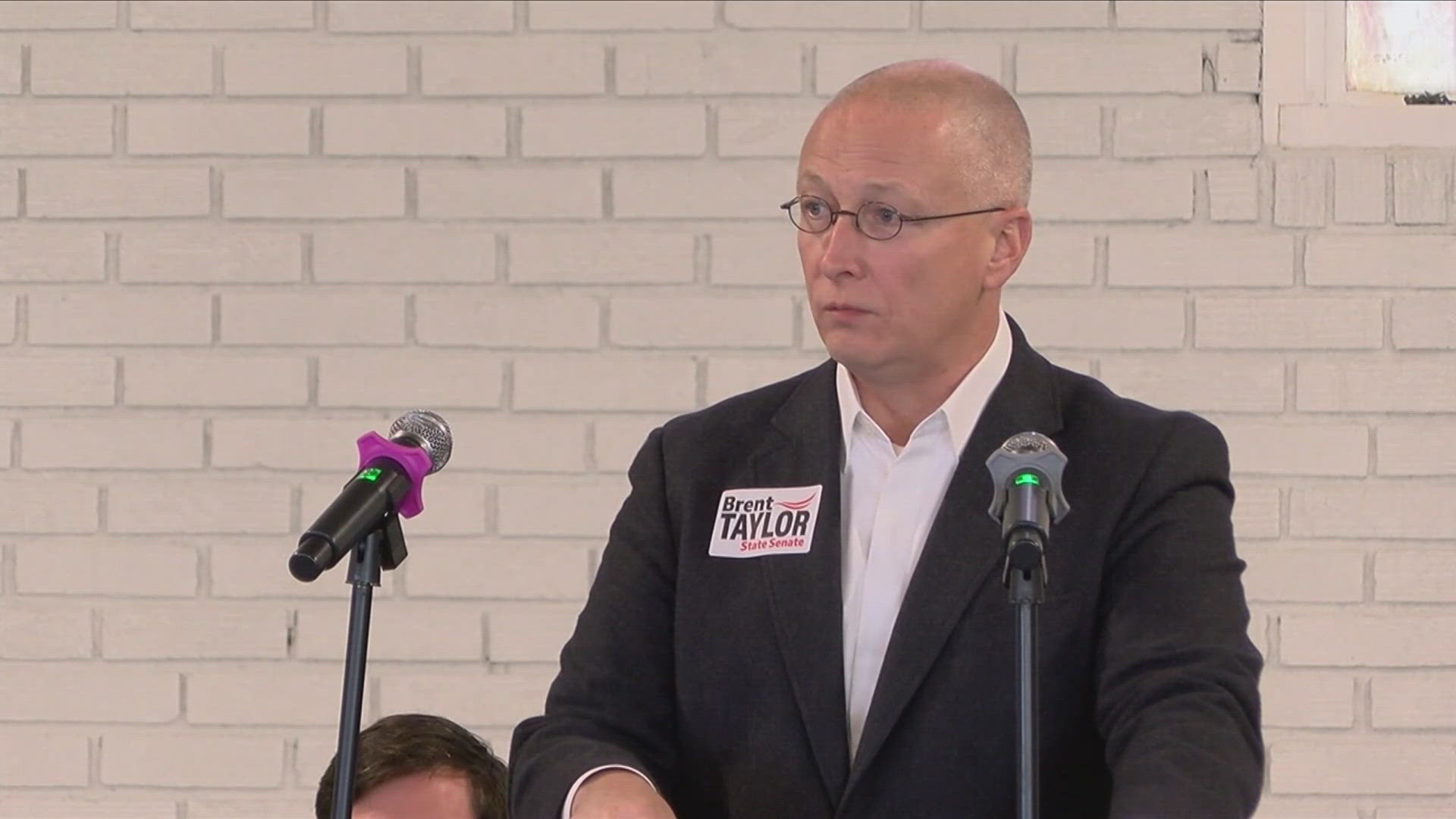MEMPHIS, Tenn. — Tennessee State Senator Brent Taylor, who represents several Memphis suburban areas in District 31, is calling for an investigation into what he calls ‘illegal restorative justice schemes’ by Shelby County District Attorney General Steve Mulroy’s Office and Shelby County Criminal Court Judge Paula Skahan.
Taylor sent a letter to the Tennessee Board of Judicial Conduct and the Tennessee Board of Professional Responsibility asking the groups to investigate Skahan and the D.A.’s office’s actions in the cases of Courtney Anderson and Michael Sample.
“I am asking the Tennessee Board of Judicial Conduct to review the actions of Judge Paula Skahan regarding her apparent advocacy of a criminal defendant and her personal bias concerning previous judicial officials,” stated Taylor in a statement. “It appears Judge Skahan used the powers of her office to get a man released from prison knowing she had no such power.”
Taylor, a Republican, is asking the Board of Professional Responsibility to determine if Mulroy played a role in the cases.
“This is a capital case where the District Attorney stipulated to facts with no proof offered and the judge accepted the stipulation as to the mental state of the death row inmate without question. This individual will soon be eligible for release into the community which could be as early as August of 2024,” said Taylor.
Courtney Anderson
Anderson, now 55, was arrested in 1997 and sentenced to nearly 163 years in prison in 2000 on multiple counts of theft and forgery. As a repeat offender, the judge gave the maximum amount of time on each conviction and required the sentences to be served consecutively.
In April 2022, the defendant filed a pro se motion in Criminal court to “correct an illegal sentence.” Judge Skahan reviewed the motion and asked the Shelby County D.A.’s office if it could investigate what, if anything, could be done. Skahan believed the sentence was technically a ‘legal’ sentence but was excessive. The D.A.’s office and defense counsel researched and found a legal ground for reopening the case.
On December 13, 2022, Skahan reduced Anderson’s sentence to 15 years, effectively a time-served sentence.
The Tennessee Court of Criminal Appeals took issue with Shakan's ruling, stating she didn't have the proper jurisdiction to reduce Anderson's sentence. They ordered him back to prison.
Michael Sample
Michael Sample, was recently released from death row after he was found to be intellectually disabled.
Sample and Larry McKay were convicted in a 1981 double murder at a convenience store on North Watkins Street.
In early 2023, Skahan vacated the death sentence for Sample on the grounds of an intellectual disability. The sentence was reduced to life in prison.
RELATED: Judge strikes down law allowing Tennessee attorney general to argue certain death penalty cases
Taylor on the investigation
“Our community is facing a violent crime crisis that demands greater scrutiny of our criminal justice system, and those who serve in it, to protect law-abiding Memphians,” Taylor said in the news release. “As senator, it’s my obligation to ensure judges and the district attorney perform their duties as required under the law and the Tennessee Constitution. There is nothing more important to the public trust than holding our elected officials accountable to Tennesseans.”
Only days ago, Taylor also sent an open letter to Michelle Long, the administrative director of the Tennessee Administrative Office of the Court, asking her to look into Judge Bill Anderson Jr.'s judicial practices and bail decisions after he let a defendant facing a murder charge out of jail without bond (called released on his own recognizance).
Mulroy's response
D.A. Steve Mulroy sent the following statement in response to the call for an investigation:
“I have complete confidence in the ethical conduct of our office in the Courtney Anderson case. A 162-year sentence for a string of nonviolent thefts was overly harsh. Mr. Anderson served a lengthy 25-year term, which was enough. We quite appropriately didn’t oppose the defense’s motion for relief, and the judge agreed. I challenge anyone to defend a 162-year sentence for nonviolent offenses.
In the Michael Sample case, the defendant's legal team presented compelling evidence, including two expert reports, establishing Mr. Sample's intellectual disability—rendering him ineligible for the death penalty as per the law. We thus agreed to a life imprisonment sentence. To argue otherwise—to push for the death penalty when I was convinced he was legally ineligible—would have been unethical.
We have a serious crime problem and need to work together to solve it. That’s why I recently convened a crime summit and am actively working with other agencies to implement the resulting strategies. I hope to meet with Sen. Taylor soon to discuss the many other initiatives our office has put in place to curb crime and how we can all work together to tackle the issue.”

